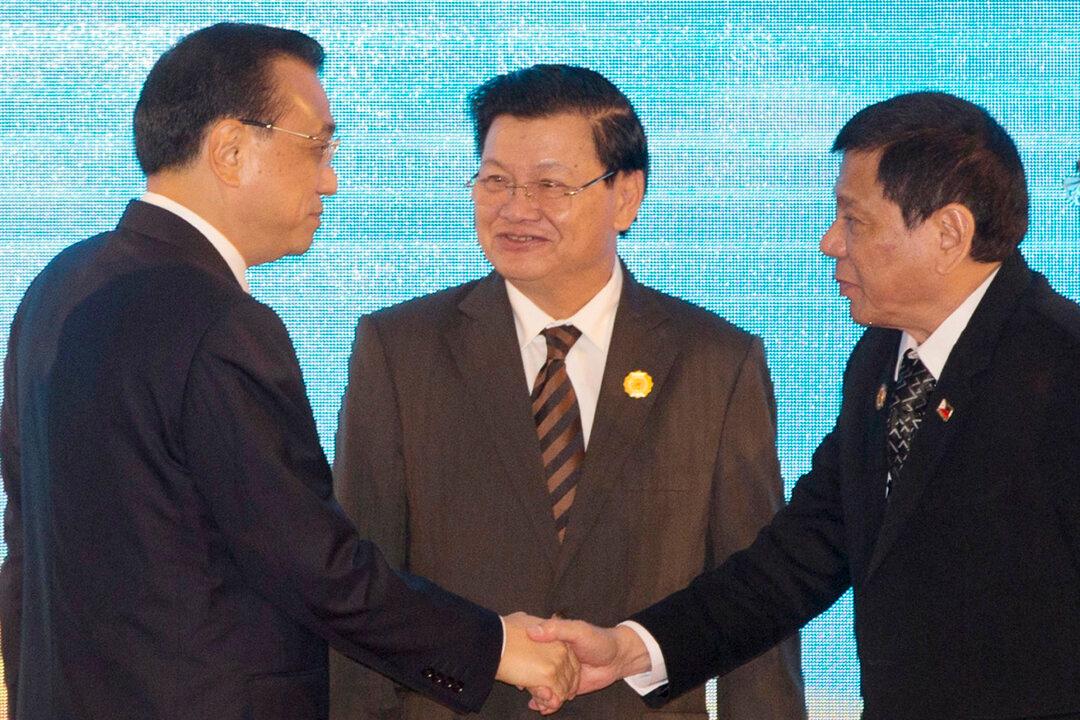In the first few months since Rodrigo Duterte, the Philippine president who has made headlines for extrajudicial killings and profanity-laced insults, took the reins in Manila, he may have done more to anger Washington than can be expressed in an expletive.
Breaking from the explicitly pro-U.S. foreign policy of his predecessor Benigno Aquino III, Duterte has in some respects appeared to warm up to the Chinese regime during recent negotiations with Beijing.
On Sept. 15, the 88-year-old former Philippine president Fidel Ramos went to Hong Kong for a meeting with Fu Ying, head of China’s congressional foreign affairs committee, to “break the ice and rekindle the friendship,” according to Japanese financial paper Nikkei. Fu was once the Chinese vice foreign minister and also Beijing’s ambassador to the Philippines.
The meeting comes two months after July 12, when an international court of arbitration in The Hague ruled in favor of the Philippines in a case concerning China’s claims to large swaths of the South China Sea.
The verdict was clear—Beijing’s “nine-dash line” hold on the South China Sea is illegal—but despite explicit American and Japanese support, Duterte, who had been in office for only 12 days at the time, has expressed ambivalence about holding China responsible to obey the ruling. This has created an opening in the Asia-Pacific region that the Chinese could use to gradually wrench Manila further from its traditional allies, who themselves have been left in an awkward position.
Playing Both Sides
According to Dr. Robert J. Bunker, a national security expert and adjunct faculty member at Claremont Graduate University, Duterte’s behavior is likely informed by his desire to “play the middle between the United States and China … to work them both for aid and investment packages as long as possible in a kind of foreign policy bidding war,” he told Epoch Times in a recent email.
By delivering a personal insult to U.S. President Obama, calling him “son of a whore” around the time of regional talks in Laos, the Philippine leader may have gotten the distance he wanted from Washington, while signalling his openness to working with Beijing as a neutral, not an American client.




